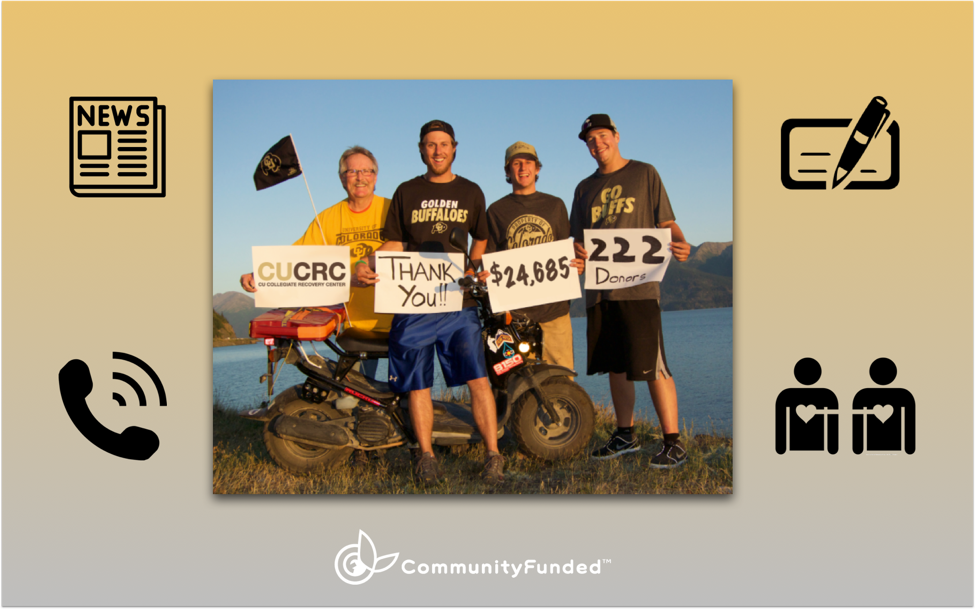min read
Richard Swart, PhD is a crowdfunding expert, educator, speaker, and alternative funding consultant. He is an Industry Advisor at Community Funded where he participates in developing best practices, advising new product development, and helping campaign creators to achieve their fundraising goals.
Crowdfunding is one of the least understood models for mobilizing resources in higher education. Despite tens of billions of dollars being pledged through crowdfunding platforms globally in the past decade, nearly all universities struggle to understand how they can apply crowdfunding models to address a number of university priorities.

The surprising truth about university crowdfunding is that the benefits are often seen outside of the initial crowdfunding campaigns.
When I work with clients, I ask them two questions to try to shift expectations:
- How will you track funds received over time back to the crowdfunding campaign?
- What additional benefits are you trying to achieve?
On several occasions, I have seen donations come into a university as a result of a crowdfunding campaign, but outside of the crowdfunding platform. Some of this is due to donor lack of comfort using technology, to donors wanting more information, to the crowdfunding campaign yielding media stories which indirectly result in donations, and sometimes simply human nature where relationships take time to develop. One of many examples resulted in a six-figure donation to a professor’s research program.

Since crowdfunding is essentially a model to monetize a network of relationships – some social, some community based, some affinity related – there are often secondary benefits that are more important to the students than the funds.
A shortlist of these benefits includes:
- Awareness of students’ work, which can yield internships and jobs
- Expert feedback and mentoring of the teams by outside individuals
- Increased community awareness of the projects and programs of the university
- Outside investment into student startups and tech spin-outs
- Dramatically increasing email and social media lists by student organizations or administrative units of the university
When researchers ask groups that have successfully crowdfunded what the key benefits are – they often list the money as 5th or 6th most important. While this is a hard sell to development professionals, it is important to remember that university crowdfunding is about much more than the funds received through an annual day of giving or other campaign.
Understanding that there will be additional, long-term benefits from crowdfunding can make it easier to explain the value proposition to university administration. Most universities get in their own way since they don’t understand the dynamics of crowdfunding and these surprising truths.
With these realizations in mind, universities planning on crowdfunding should think about the following data points:
- Collecting identities and contact information across multiple platforms
- Tracking social media engagement
- Tracking media mentions
- Tracking investments, internships and job creation
- Learning more about interests of potential donors
- Encouraging major giving to monitor gifts that may be indirectly associated with crowdfunding campaigns
- Student learning from running the campaign (talk about project based learning!)
When seen in isolation and with short-term optics, university crowdfunding campaigns often fail to excite or engage support across university units. If they are seen as a hybrid between donor engagement, student support, tech commercialization, annual giving, data mining, donor profiling, and social media marketing, then the truth is that university crowdfunding can yield substantial benefits to those universities that learn to mobilize their various communities and constituencies through crowdfunding.
Richard is Swart, PhD is recognized as one of the top thought leaders in crowdfunding and alternative finance, with particular expertise in its impact on social innovation and global challenges. He has been the subject of stories and interviews in leading business publications including Forbes, Inc, Entrepreneur, VentureBeat, The Wall Street Journal, and The New York Times.
He is co-author of the book Crowdfunding: The Corporate Era, which discusses how corporations leverage crowdfunding as an essential tool for driving innovative ways to strengthen their brand experience, deepen their impact in the community and improve sales.






